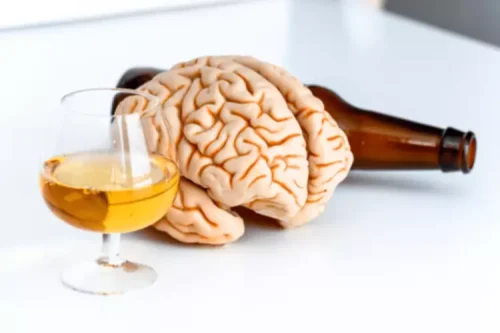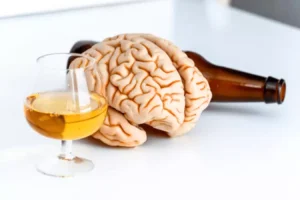
People who choose not to drink make that choice for the same reasons. Knowing your personal risk based on your habits can help you make the best decision for you. In the U.S., 1 drink is usually considered to be 12 ounces of beer, 5 ounces of wine, or 1½ ounces of spirits (hard liquor such as gin or whiskey).
Possible Health Benefits of Alcohol
- Alcohol consumption is a risk factor for cancers of the mouth, throat, colon, breast and liver (57, 58, 59).
- Drinking moderately if you’re otherwise healthy may be a risk you’re willing to take.
- Last, the analysis was based on current drinkers and ignored past drinking.
- At the same time, light and moderate drinkers were more likely to exercise and eat a healthy diet, less likely to have a chronic health condition, and more likely to be wealthy.
- Excessive alcohol consumption can be dangerous; in fact, it’s the leading factor in the deaths of young men, he noted on the January 16, 2023 episode of the podcast Food, We Need to Talk.
Said Rimm, “For longevity and all-cause chronic disease, those who drink 1-2 drinks a day relatively frequently do the best. “After that, if you enjoy a few drinks several times a week, it will probably do you benefit! For decades, we have been told moderate consumption of alcohol has protective effects, reducing heart disease and increasing life span. More recently, some researchers have questioned the health benefits of alcohol and linked any drinking with increased risks for premature death, heart disease, stroke, and cancer. Getting extra folate may cancel out this alcohol-related increase.
Science around moderate alcohol use

At the same time, light and moderate drinkers were more likely to exercise and eat a healthy diet, less likely to have a chronic health condition, and more likely to be wealthy. In short, moderate drinkers were more likely to lead healthier lifestyles. At the same time, light and moderate drinkers were more likely to exercise and eat a healthy diet, less likely to have a chronic health condition, and more likely to be wealthy. There is also some evidence that genes influence how alcohol affects the cardiovascular system. An enzyme called alcohol dehydrogenase helps metabolize alcohol.

Deaths from excessive alcohol use
Alcohol is one of the most popular psychoactive substances in the world. Generally referred to as “alcohol,” ethanol is the substance that makes you drunk. Many past studies did not consider other factors that could have influenced the results.
Defining moderate alcohol use

For men, heavy drinking means more than four drinks on any day or more than 14 drinks a week. Ultimately, due to these confounding influences, proving a direct causal link between moderate drinking and health benefits/harms is not possible. A study finds light drinkers have the lowest combined risk of getting cancer and how to drink moderately dying prematurely — lower than nondrinkers. Alcohol is estimated to be the third-largest contributor to cancer deaths. Learn more about the results of some large prospective cohort studies of alcohol consumption and cardiovascular disease.
- Some people drink small amounts at a time, while others tend to binge drink.
- The study found that drinking relatively small amounts did not equate to a lower mortality risk than people who abstained from alcohol.
- The evidence for moderate alcohol use in healthy adults is still being studied.
- However, heavy drinking can have a negative impact on your mood and the function of your brain, heart, and other bodily systems.
I want to get healthier
Alcohol consumption is a risk factor for cancers of the mouth, throat, colon, breast and liver (57, 58, 59). In fact — while drinking beer regularly may cause an increase in waist circumference — the well-known “beer belly” — wine consumption may have the opposite effect (31, 35, 36). Ethanol reduces communication between brain cells — a short-term effect responsible for many of the symptoms of being drunk.
Which type of alcoholic beverage is best?
Drinking alcohol in moderation appears to reduce insulin resistance, fighting the main symptoms of diabetes (47, 48, 49, 50). However, studies investigating the link between alcohol and weight have provided inconsistent results (31). People may start abusing alcohol due to depression or become depressed by abusing alcohol. The main psychoactive ingredient in alcoholic beverages is ethanol. Projected estimates of dementia from the new study indicate worldwide the number of people living with dementia could nearly triple, from 57 million in 2019 to about 153 million by 2050. If true, this information points to an urgent need for effective prevention strategies.

Studies suggesting a heart benefit
It affects levels of lipids (cholesterol and triglycerides) and insulin in the blood, as well as inflammation and coagulation. The research team pointed out that future studies should look at how much alcohol people have consumed over their lifetime to get a better sense of the risks and benefits. The study found that drinking relatively small amounts did not equate to a lower mortality risk than people who abstained from alcohol. Previous research on alcohol consumption has used observational studies, meaning researchers simply tracked how much participants drink and then looked for associations. This research often did not take into account other factors in participants’ lives. Eighty-six of the 107 studies misclassified former drinkers and occasional drinkers as being abstinent.
- The less alcohol you drink, the lower your risk for these health effects, including several types of cancer.
- Millions of Americans enjoy beers at the ball game, wine with dinner, or a cocktail with friends after work on Friday.
- The contents of this website are for educational purposes and are not intended to offer personal medical advice.
- Drinking also adds calories that can contribute to weight gain.
- Deaths from all causes ranged from dying from heart disease to road crashes, and fatal injuries.
- If you already drink at low levels and continue to drink, risks for these issues appear to be low.
Most people can consider either:
Light drinking has also been linked to a lower risk of cirrhosis, a reduced risk for dementia and cognitive decline, and even making you less deaf. Light to moderate drinking is linked to a reduced risk of heart disease, while heavy drinking appears to increase the risk (37, 38, 39, 40). In the latest study on dementia, the one concluding any alcohol consumption is a risk, researchers examined data from nearly 314,000 white British adults from the U.K. The researchers sought a relationship between light-to-moderate alcohol consumption and future dementia risk. Participants provided information about their drinking habits, with researchers tracking dementia cases through hospital and death records over 13.2 years. The average alcohol consumption recorded was 13.6 units per week, with nearly half the participants exceeding the UK’s recommended limit of 14 units per week.
Alcohol is one part of the ongoing debate surrounding the 2025 Dietary Guidelines for Americans. Other contentious issues center around recommendations for red meat, sugary beverages, and environmental sustainability. In the past, moderate drinking was thought to be linked with a lower risk of dying from heart disease and possibly diabetes. After more analysis of the research, that doesn’t seem to be the case. In general, a healthy diet and physical activity have much greater health benefits than alcohol and have been more extensively studied. According to Harvard’s Professor of Medicine Dr. Eric Rimm, ScD, studies purporting to prove any alcohol consumption increases risks for dementia and other diseases are problematic.
